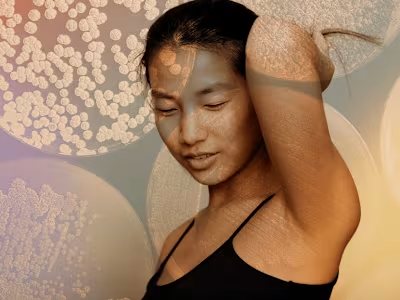Alopecia areata
A common autoimmune disorder that primarily affects the hair follicles, leading to unpredictable hair loss. With this condition, the body's immune system mistakenly attacks the hair follicles, treating them as foreign entities. This immune response disrupts the normal hair growth cycle, resulting in the hair follicles entering a dormant phase and ceasing to produce new hair strands.
The exact cause of alopecia areata is not fully understood, but it is believed to be a combination of genetic predisposition and environmental factors. Certain individuals may have a higher risk of developing the condition if they have a family history of autoimmune conditions or if they have specific genetic markers associated with alopecia areata.
The characteristic symptom of alopecia areata is the sudden onset of round or oval-shaped patches of hair loss on the scalp, although it can also affect other areas of the body, such as the eyebrows, eyelashes, and beard. In some cases, the hair loss may progress to involve the entire scalp (alopecia totalis) or the entire body (alopecia universalis). The affected areas of the skin are usually smooth and devoid of any signs of inflammation or scarring.
The course of alopecia areata is highly unpredictable, with hair regrowth occurring spontaneously in some cases and others experiencing recurrent episodes of hair loss. The condition can vary widely in severity and duration, with some individuals experiencing mild, localized hair loss that resolves on its own, while others may face long-term or permanent hair loss.
While there is no cure for alopecia areata, several treatment options are available to manage the condition and stimulate hair regrowth. These treatments primarily aim to suppress the overactive immune response targeting the hair follicles. Common approaches include topical or injectable corticosteroids, topical immunotherapy, minoxidil (a hair growth stimulant), and in some cases, systemic immunosuppressive medications.
It is important for individuals with alopecia areata to seek medical evaluation and guidance from a healthcare professional, such as a dermatologist. Proper diagnosis and understanding of the condition can help determine the most appropriate treatment approach and support the individual in managing the emotional and psychological impact of hair loss.
Like this project
Posted Jun 17, 2023
Technical piece to explain Alopecia Areata an autoimmune disease.
Likes
0
Views
6
Tags





